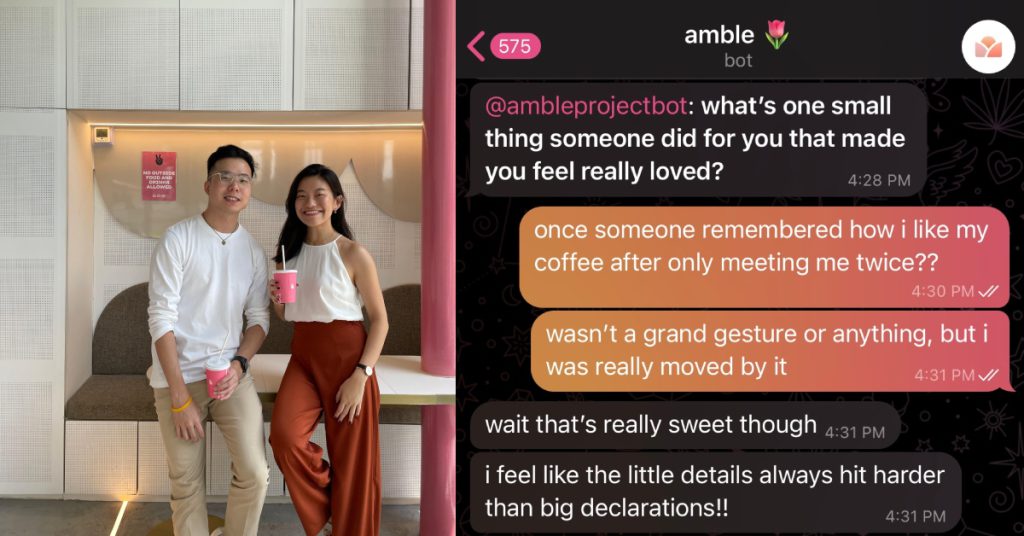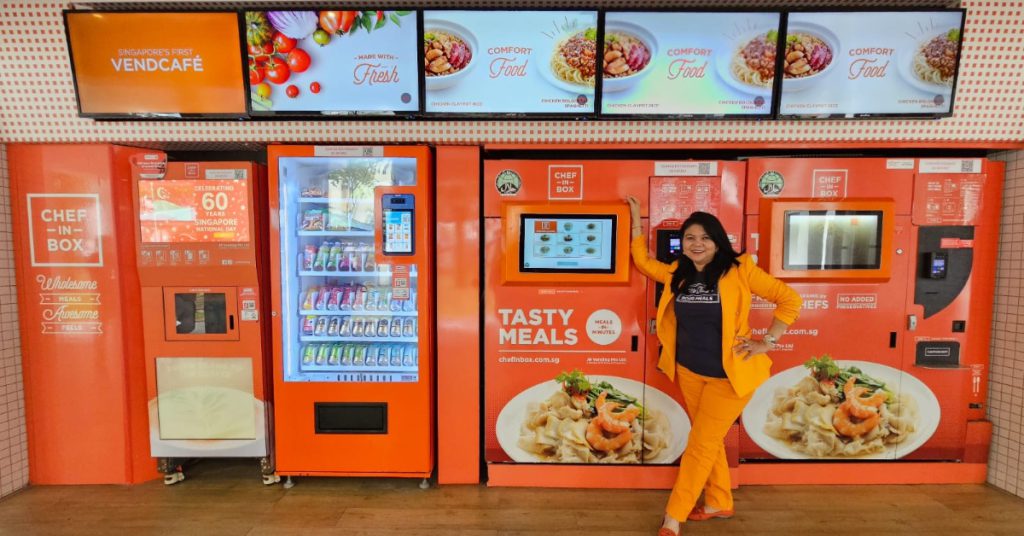- He initially started out as an internet and telecommunications services provider and decided to bring in pocket Wi-Fi routers after noticing a gap in the travel industry.
- However, business didn’t pick up right away, and on top of that, clients turned into competitors which led to him going almost bankrupt.
- Now, he has 2,000 units and customers can choose to collect them from any 59 participating 7-Eleven stores in Singapore.
“When I was a lecturer for MICE (meeting, incentives, conventions and exhibitions) modules, an event organizer asked me if I [could recommend a service provider who could] support their Wi-Fi and network during their event,” Jacky Chua, CEO of Spaceroam Pte. Ltd., recounted.
“[As I didn’t know] anyone in particular [then], I decided to set up my own company to support them [and we’re still serving them] till this day. I stayed employed while doing some small projects on the side.”
Formerly known as Simply Unique Pte. Ltd., Jacky started up in 2010 to provide internet and telecommunications services to local events and concerts.
He then launched pocket Wi-Fi rental service, Y5Buddy in 2013 but almost went bankrupt. Despite that, he didn’t pull the plug on it.
In November 2018, Spaceroam entered into a partnership with convenience store chain 7-Eleven, allowing customers to collect their pocket Wi-Fi devices at 59 outlets islandwide.
Spaceroam continues to provide its services such as installing Wi-Fi infrastructure and more, to multinational corporations, government agencies, and various industrial projects.
Y5Buddy now has 2,000 units of pocket Wi-Fi routers that can be used in over 130 countries.
I had the opportunity to speak with Jacky to understand what went on during those years and his strategy for success.
Marrying Tourism & Hospitality With Technology

The 36-year-old shared, “My dad was an engineering lecturer and my elder brother was a computer engineer and tech business owner, which led me to be fascinated with technology.”
After completing National Service (NS), he studied hotel management in Switzerland and then went on to the University of Surrey where he graduated with a BSc in Management (Tourism).
“Throughout my studies, my best subjects were always the IT modules, such as hotel management systems, travel website design, and programming modules,” Jacky told me.
After graduation, he returned to Singapore and worked as a marketing executive at Bintan Resorts Tourism, a tourism and hospitality lecturer in various private schools, then as a corporate sales manager at Keppel Land, and then as a business development manager at a software and mobile apps company.
But he always kept a close eye on technology-related news within the tourism and hospitality field.
“It was my personal dream to merge travel and technology, especially for the ASEAN region,” Jacky shared.
When the Nanyang Technological University (NTU) postgraduate went to Kyoto, Japan, in 2013 for an academic conference as part of his Master’s degree curriculum, he came across pocket Wi-Fi routers that were commonly used by people in Japan, tourists and locals alike.
“I knew that this will become a technology disruptor for the travel industry if I bring it back to Singapore,” he said.
“That was when a friend of mine in Hong Kong asked if I wanted to start a business and share resources between [us]. So we started the brand Y5Buddy and I was in charge of Singapore and the ASEAN region.”
(Almost) Lost In Transmission

In hindsight, introducing the pocket Wi-Fi devices to the Singapore market proved to be the boost Simply Unique needed, then, as the “company really took off”.
But it wasn’t a hit right away.
“The devices initially covered four countries. During that point in time, no one in Singapore really knew about this service or how it works,” he recalled.
He built a website with the help of his brother’s software team, hired an intern, and got a shared office space. But as business was poor, he felt like he had hired the intern just to sit in the office with seven pocket Wi-Fi routers.
Taking marketing inspiration from companies in Hong Kong and Japan, Jacky engaged influencers like Andrea Chong, Jemma Wei, and Melissa Koh and landed their first sales.
However, one year later into the business, sales were still not good enough for him to leave his job at Keppel Land.
“I decided that if I want to grow the business for real, I had to make some sacrifices and leave my comfort zone.”
So when his sabbatical year ended and he had completed his Master’s degree, he quit Keppel and took over his intern’s job.
“We grew to have 30 devices covering seven countries. I had to purchase SIM cards from these countries and plug them into [these] devices to supply to travellers out of Singapore,” Jacky told me.
“However, after purchasing the devices, the flights I took to each country to secure and negotiate with the telcos there, and the marketing efforts, I was left with little to no income each month,” he shared.
“I had to make personal deliveries to my customers as I could not afford courier services.”
While he was growing Y5Buddy, he continued to secure more events, like the Michelin Guide award ceremony and SEA Games 2015 for Simply Unique.
As business picked up in 2015, Y5Buddy had 300 devices that can be used in 70 countries, Jacky hired one staff to handle administrative matters while he did events and deliveries.
“That was when we were approached by a client to discuss a collaboration. However, they took stocks from us, learnt the business model, and began their own business,” he told me.
“Four other HK companies came in to compete, which saw said client slashing the prices by more than five times the original selling price in a price war, forcing all the other companies to close down.”
Jacky revealed that Y5Buddy Singapore had been on the “[brink] of bankruptcy” at the time.
“We were losing so much money so quickly that I was on personal bankruptcy within weeks,” he said.
But then, an opportunity came pinging for him; landlords of some worker dormitories invited him to participate in a tender to install Wi-Fi infrastructure after hearing about his work at events he’s done before.
They won the bid for four worker dormitories and started on the work with the help of his friend, an employee, and his brother.
With that pot of gold, they sought to upgrade and researched on cloud-based Wi-Fi devices.
Jacky said, “I invested all my money into the technology, [procuring] 700 cloud-based devices for 90 countries.”
Thanks to an investment from a good friend and support from a team of engineers, they were able to make the upgrade and set themselves apart from competition during the peak travel period and made Spaceroam’s very own IPs.
“I had also gathered like-minded programmers and partners to build our own internal CMS/CRM systems, automation systems and networking solutions. While doing so, we built a business relationship with 7-Eleven, mobile phone distributors and shipping enterprises,” Jacky shared.
Innovate Or Get Disconnected

Learning from the past, Jacky and his team developed a system called, Booking Enhanced Management Systems (BEAMS) that takes inspiration from travel booking system Sabre, hotel management system Opera II, and the latest workflow automation systems.
The system is described as an “in-house workflow automation system that serves as a central system to link up the business process automation, the logistics automation, and the industrial automation”.
Basically, BEAMS makes the process from online booking to managing the inventory of the devices, to the activation of the SIM card, to scanning the QR code at the 7-Eleven, seamless.
“We knew that we will lose out in the market if we do not have an edge over our competitors. If we continue to merely be a distributor and ad hoc Internet Service Provider, we will likely be left behind or crushed again,” Jacky explained.
BEAMS allows customers to easily collect their pocket Wi-Fi devices just by scanning a QR code.
Customers have to first book a device and make payment online, then they’ll receive a unique QR code via email to show to any cashier at any participating 7-Eleven outlets to pick up their Y5Buddy.
At the end of their holiday, customers can return the pocket Wi-Fi the same way.
When the opportunity to work with 7-Eleven came up, Jacky said they spent a year developing and testing the system with them.
Understanding the logistics system firsthand enabled them to create an automation API that large-scale companies can use.
Jacky hopes that Spaceroam can go from “traditional brick-and-mortar services company” to being recognised as the company behind “the leading system for the tourism and hospitality industry”, that is BEAMS.
They are adding more functions into BEAMS and are in the midst of applying for a patent this year.
“Singapore in 2013 was lagging behind in terms of travel technology compared to Japan, Korea and even Hong Kong,” he said.
“Launching Y5Buddy [disrupted] the global roaming services which, up till then was serviced by telcos charging high roaming rates and providing limited services.”
“I’m glad the pocket Wi-Fi revolution has changed the game,” he added.
Customers can expect a Spaceroam mobile app that includes functions that show rental transactions, network coverage, travel data usage, and self-activation tools, among others.
Spaceroam will also be developing software and mobile apps for companies to manage their finance, analytics, workflow and reporting duties through BEAMS.
Following their partnership with 7-Eleven and M1, who’s their preferred local data provider, Jacky plans to work with all other telcos in a range of projects to provide offshore Wi-Fi for the shipping industry and participate in 5G network trials for future home and office automation.
If you’re going on a trip soon and want to rent a Y5Buddy, book one here, and for a list of participating 7-Eleven, go here.
Featured Image Credit: Spaceroam Pte. Ltd.












